High-Impact Practices “Knowledge and Society”: Reflecting on an Interdisciplinary First-Year Honors Seminar
Daniel Kircher: Lewis Honors College, University of Kentucky
Zada Komara: Lewis Honors College, University of Kentucky
Sherelle Roberts: Lewis Honors College, University of Kentucky
Kenton Sena: Lewis Honors College, University of Kentucky
Introduction: “Knowledge and Society,” a required first-year seminar in the Lewis Honors College at the University of Kentucky, invites students to “opt-in” to honors education as interdisciplinary and student-led, explores historical and social dimensions of knowledge creation and communication, and sharpens critical reading, thinking, and discourse skills. In this panel, we will share about how the course was developed and has continued to evolve over the past six years, explore the course as an example of centering diversity, equity, and inclusion in the curriculum, reflect on the unique opportunities and challenges afforded by a course co-created and co-taught by faculty across multiple disciplines, highlight desirable course outcomes not explicitly listed on the syllabus, and describe opportunities to incorporate experiential education within the structure of the course.
Course development and evolution: Developing a required course can be approached in a number of ways, and in this course, several approaches have been tried, but one has proven more successful. This presentation will outline the approaches made to developing the course, why the approach matters so significantly to the course’s success, and how required and shared courses can be effectively maintained. The roles of administration and faculty will be considered.
Fostering inclusion and addressing epistemic injustice: This course’s exploration of knowledge construction and circulation encourages students to deeply consider issues of epistemic authority and injustice in academic practices. As instructors, we strove to implement pedagogical practices which cultivate students’ own epistemic authority through affirmations of students’ diverse overlapping and intersecting identities as embodied knowers to promote epistemic justice.
Collaborative interdisciplinary course development and teaching: The course material in HON 140 is unique in that it lends itself to an array of faculty disciplines, allowing each instructor to teach from their own unique vantage point and from their own areas of strength. With a background in English literature and creative writing, for example, I’ve incorporated creative non-fiction and poetry readings into each unit. Students are also given the freedom to respond creatively to the course material, including writing poetry, and/or creating videos, podcasts, or artwork. While sharing similar frameworks and units, professors from other disciplines likewise add their own unique take on the course, from history to anthropology, from philosophy to art. In this sense, the course manages to be both collaborative and individual.
Additional course outcomes: As a first-year seminar, “Knowledge and Society” is often the first honors course students take at the University of Kentucky. In addition to helping students reimagine how they engage their own education, alongside developing their critical and complex thinking skills, the structure of the course creates opportunities for students to connect with one another. We wanted to highlight a few aspects of the course that we think facilitate developing this sense of community, belonging, and togetherness, which could easily be applied in other courses. The course also presents an opportunity to create shared “signature” experiences and a broader sense of college identity (later alumni devotion), and it emphasizes honors faculty and staff as a nurturing and caring community.
Experiential Education: Active participation in learning, a pillar of honors pedagogy, has fundamentally shaped the development and implementation of “Knowledge and Society” over the years. For some of us, this has taken the shape of experiential activities and assignments. In this segment, we will share some specific ways we have incorporated experiential education in the HON 140 classroom, such as inviting students to participate in a real-life oral history project and developing a slang database for linguistic research.
